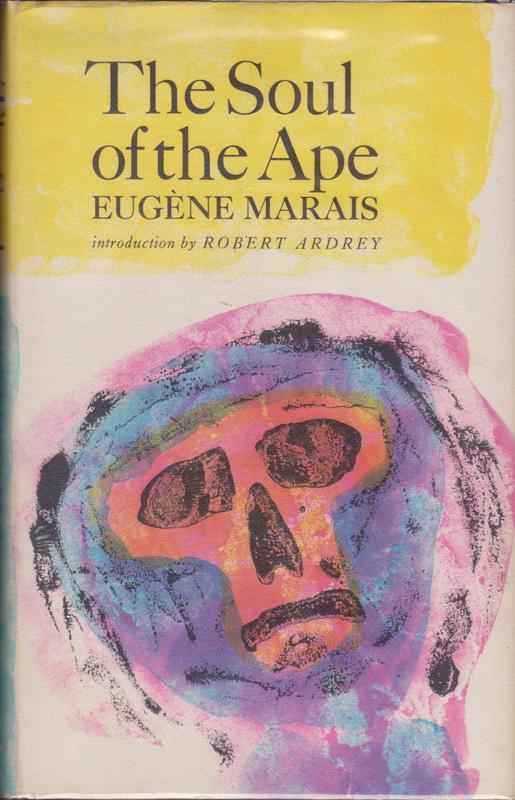The Soul of the Ape
Title
The Soul of the Ape
Description
Eugene Marais was an Afrikaner who in the course of his lifetime was a journalist, lawyer, poet, and amateur naturalist. The Soul of the Ape, written in the early '20's and only recently unearthed, represents Marais' interpretations of higher primate behavior based on three years of living in close proximity to a tribe of wild chacma baboons in the years following the Boer War. Robert Ardrey, in a long, fulsome introduction, declares this to be a masterpiece, not perhaps as scientifically sophisticated as it should be, but full of insights ethologists are teaching today. The work is not a masterpiece. It is weak in science, full of naive experiments with hypnosis which bear out shaky hypotheses about the degeneration of the senses and the like. But it is a fascinating study of the personality of a man who clearly did do some remarkable things, did believe in man's ""animal nature"" and saw many grounds for comparison between baboon and human behavior. His own nature was infected with gloom and sadness, and so not surprisingly, he saw such emotional shadowings in the primates. Baboons and man both get depressed, need drugs, exhibit sexual behavior at variance with other mammals. Marais considered some of these patterns of behavior and others as related to the evolution of adaptive behavior, or ""causal memory,"" which he thought was in deepest conflict with instinctive hereditary behavior geared toward ""narrow"" selection. Marais was a morphine addict who committed suicide in 1936. – Kirkus Reviews
Subject Matter
Zoology
Publication Year
1969
Publisher
Human & Rousseau
Language
English
Collection
Citation
“The Soul of the Ape,” The Bruce Lee Library Research Project, accessed April 19, 2025, https://www.bruceleelibrary.jamescbishop.com/lib/items/show/1927.

